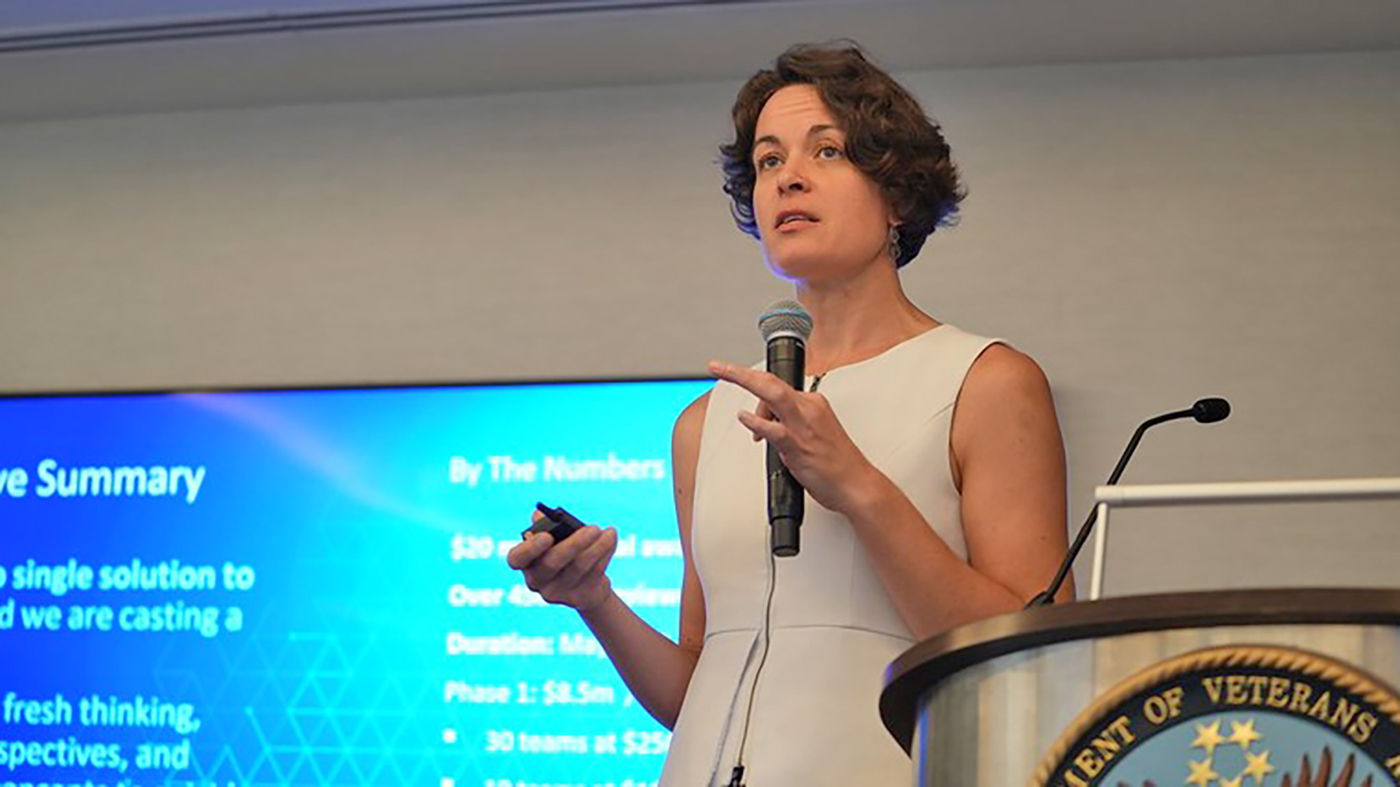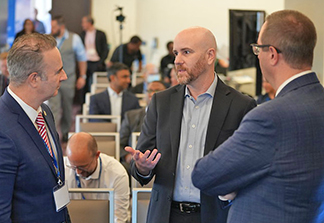VHA’s Office of Healthcare Innovation and Learning (OHIL) supports data and analytics projects that leverage vast amounts of clinical data to improve Veterans’ health issues without compromising patient privacy and the process of delivering quality care.
This summer, data experts, VA leaders and VA employees convened in Washington, D.C., at VA’s National Artificial Intelligence (NAII) International Summit of AI in Healthcare’s DataX session track. The DataX session track showcased some of the data and analytics work being done in VA and highlighted how this work is impacting clinical care for Veterans.
“VA is a leader in terms of bringing data into the clinical world,” said Dr. Rebecca Resnik, clinical psychologist and president of the Maryland Psychological Association. “I am excited to see VA as a leader in this space.”
The gold standard of data
DataX gave attendees an opportunity to learn more about current and future states of data analytics within VA. The three-day session track convened VA and industry leaders; divided among six panel discussions, it illustrated how they can navigate barriers, improve data policy and enhance the information sharing process.
One conversation involved the governance of AI to improve the structure of data processes. “We start with our priorities,” said Duncan McElfresh, postdoctoral fellow in Health Services Research and Development with the VA Center for Innovation to Implementation. “We have to take those priorities and distill them down to frameworks. Then, you must operationalize them.”
In a panel on surveillance care pathway optimization, Evan Albert, director of Measurement and Data Analytics for the Veterans Experience Office, discussed the importance of doing this work the right way. “Trust has to be the gold standard. Trust has to be the bottom line metric that people are gravitating towards.”
Dr. Amanda Lienau, director of Data Analytics Innovation for OHIL, facilitated a discussion on a promising data innovation pathway that allows for the development of algorithms and models without releasing protected health information. “I am really excited about this method to open up data, making it much more accessible to more people. The next step is: Can we unlock wearables data? Can we unlock social media data? What kind of data can we unlock and pair with Veterans’ health care data?”
Optimizing Veteran health care
The DataX session track also provided an opportunity for attendees to learn about and collaborate on new data and analytics innovations for Veterans. One technology that was piloted captures the conversation during a medical appointment and then uses AI to create medical notes for the health record and for patient use. This utility could significantly reduce administrative burden for providers.
Another analytics innovation aims to optimize care for Veterans with pulmonary fibrosis by reducing delays that prevent a timely diagnosis. The data solution will identify patients in a timely manner, triage care based on the highest risk of adverse outcomes and connect patients to specialists in their area.
Data innovation in VA
A common thread among all the panels was building trust and making data accessible to Veterans.
“Quality and trust are quite interlinked. Patients trust providers that they feel care about them,” said Dr. Bhavika Kaul, investigator, VA Center for Innovation in Quality, Effectiveness and Safety. “The more patients see we are building infrastructure, they will be more open to receiving care at their VA facility.”
Want to learn more about innovation at VA? Visit our website, scan Diffusion Marketplace, subscribe to our weekly newsletter, and explore VA Pathfinder to learn more about our opportunities.
Topics in this story
More Stories
The Medical Foster Home program offers Veterans an alternative to nursing homes.
Watch the Under Secretary for Health and a panel of experts discuss VA Health Connect tele-emergency care.
The 2024 National Veteran Suicide Prevention Annual Report provides the foundation for VA’s suicide prevention programs and initiatives.








The VA has proven over decades that it knows nothing about our data privacy. This is a disaster in the making. What it needs to do is scrub the old system and start over from scratch with something new instead of keeping layering software upon software upon software. It would also be helpful if it stopped using our Social Security numbers as identifiers as Congress told it over 15 years ago.
There should be a simple way for veterans to view ALL records to make corrections as well as to remove inaccurate data. Moreover, there must and needs to be a way to allow records to expire and become permanently deleted after 7 years, 7 years being the standard for record keeping for tax purposes as well as in the year 2000 for medical records.